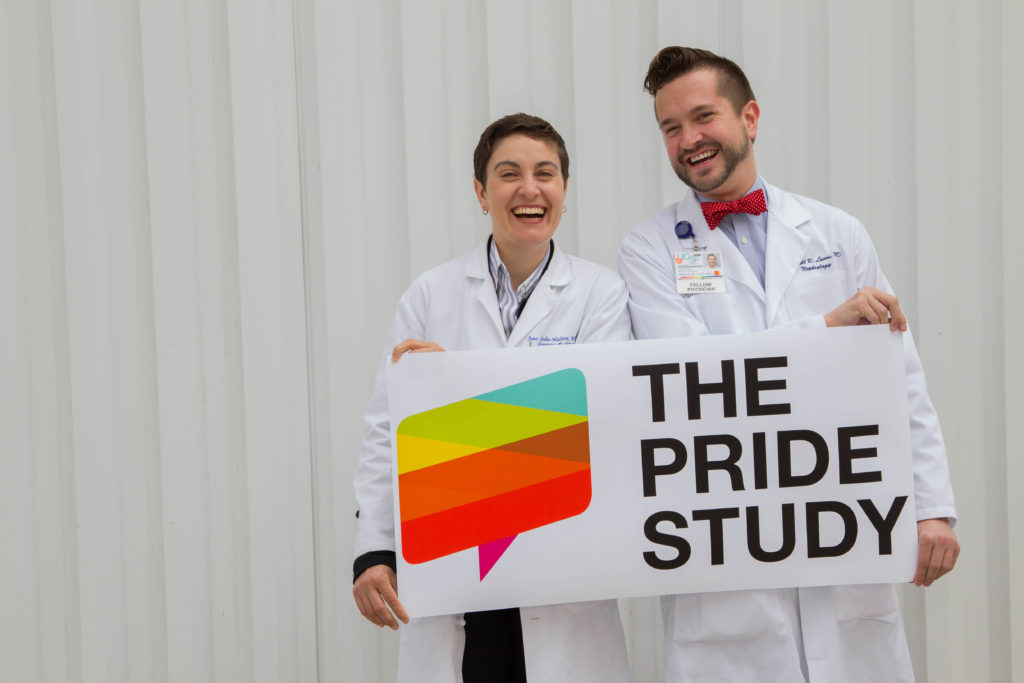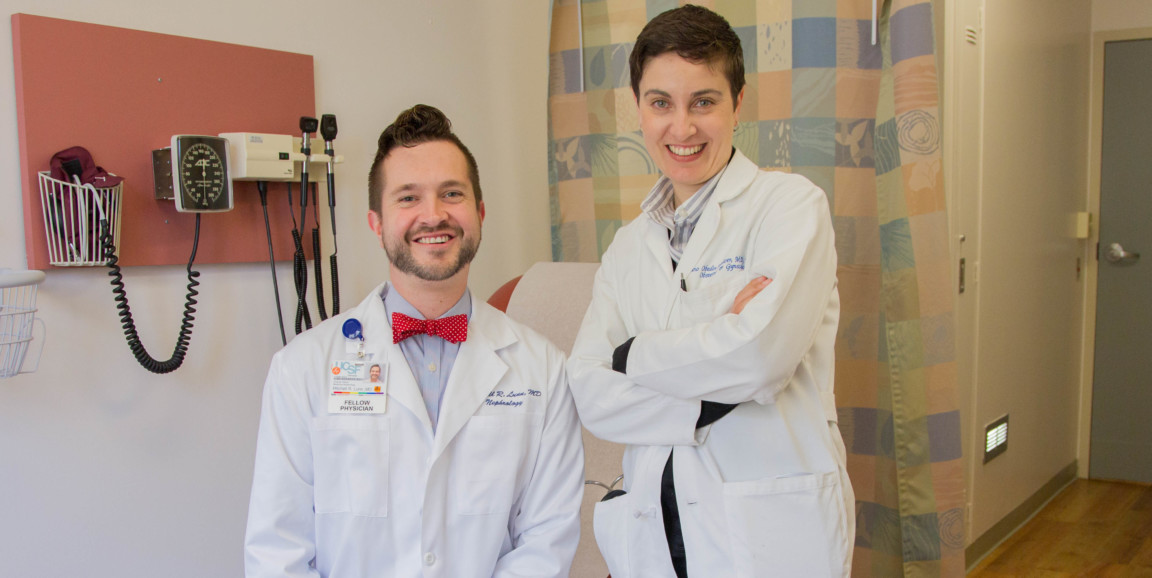When Mitchell Lunn, MD, and Juno Obedin-Maliver, MD, launched their long-term study of sexual and gender minority health, they knew they wanted the patients, not the doctors, to drive the research.
In the pilot phase of The PRIDE Study (Population Research in Identity and Disparities for Equality), 16,000 participants nationwide completed demographic and health surveys, and shared more than 3,500 topics for future investigation. They wanted the researchers to study anxiety, depression and suicide in people who identify as lesbian, gay, bisexual, transgender or queer; the role of family support in both physical and mental health; and why many LGBTQ people persevere in the face of stigma and discrimination, among other topics.
"We're research by us, with us. We don't do research on LGBT people, we do research with them. It's a little less transactional and a little more relationship based. That was one of the key components," Lunn said. "Rather than academia deciding, we wanted the study to actually study things that are important to this community."
Lunn and Obedin-Maliver, who met as students at the Stanford University School of Medicine in 2005, recently returned to Stanford as faculty members. The assistant professors are starting a new program in sexual and gender minority health research in addition to moving The PRIDE Study's home base from the University of California, San Francisco to Stanford.
Lunn, a nephrologist, and Obedin-Maliver, an obstetrician/gynecologist, have been thinking about the health care needs and health care disparities affecting sex and gender minorities since they were medical students.
"It's a population that tends to be underserved, largely because they've been discriminated against. If you go to the doctor's office and have a bad experience, you may never come back until diseases are very advanced," Lunn said. "There are a significant number of known health and health care disparities, and we weren't really learning a lot about them."

To understand the many ways that sexual orientation and gender identity affect health -- including disease risk factors and unique strengths, like resilience in the face of adversity -- the researchers needed data about LGBTQ patients. And that data didn't exist, because medical forms don't typically ask patients about their sexual orientation or gender identity.
So Lunn and Obedin-Maliver set out to collect it themselves. As research fellows at the University of San Francisco, the two physicians wanted to do for LGBTQ health what the Framingham study accomplished for heart health. They led a pilot phase of The PRIDE Study from 2015 to 2017, using an iPhone app, in what they believe was the first time a mobile app has been used to specifically recruit large numbers of an underrepresented population for clinical research.
The study relaunched in 2017 on a web-based platform to reach a more diverse pool of participants. It has attracted nearly 14,000 people and continues to recruit for more. Participants share demographic information such as their sexual orientation, gender identity, race, ethnicity and relationship status; participate in annual health questionnaires; and join topic-specific studies (such as a breast cancer screening study for those assigned female sex at birth).
Lunn and Obedin-Maliver know so much about the cohort that "we have literally thousands of research questions we could answer," Lunn said.
"We could do a study today asking, 'Are transgender people who live in rural areas more likely to have higher depression scores compared to urban areas?'" he said.
The researchers hope to publish some of their preliminary findings in the next few months on topics including substance use, eating disorders and whether there are demographic differences among those who select multiple gender identities or sexual orientations.
The PRIDE Study team is also partnering with several organizations on more than 10 ancillary research projects, including a collaboration looking at reproductive needs of trans or non-binary people who were assigned female at birth. In the spirit of community engagement, all studies are approved by both a participant advisory committee and a research advisory committee, Lunn said.
"There's a lot that is possible with this type of dataset," Lunn said. "We really hope that this is going to start to improve our understanding of some of the health and health care disparities that are affecting LGBT people."
Photo of Mitchell Lunn and Juno Obedin-Maliver by Susan Merrell




